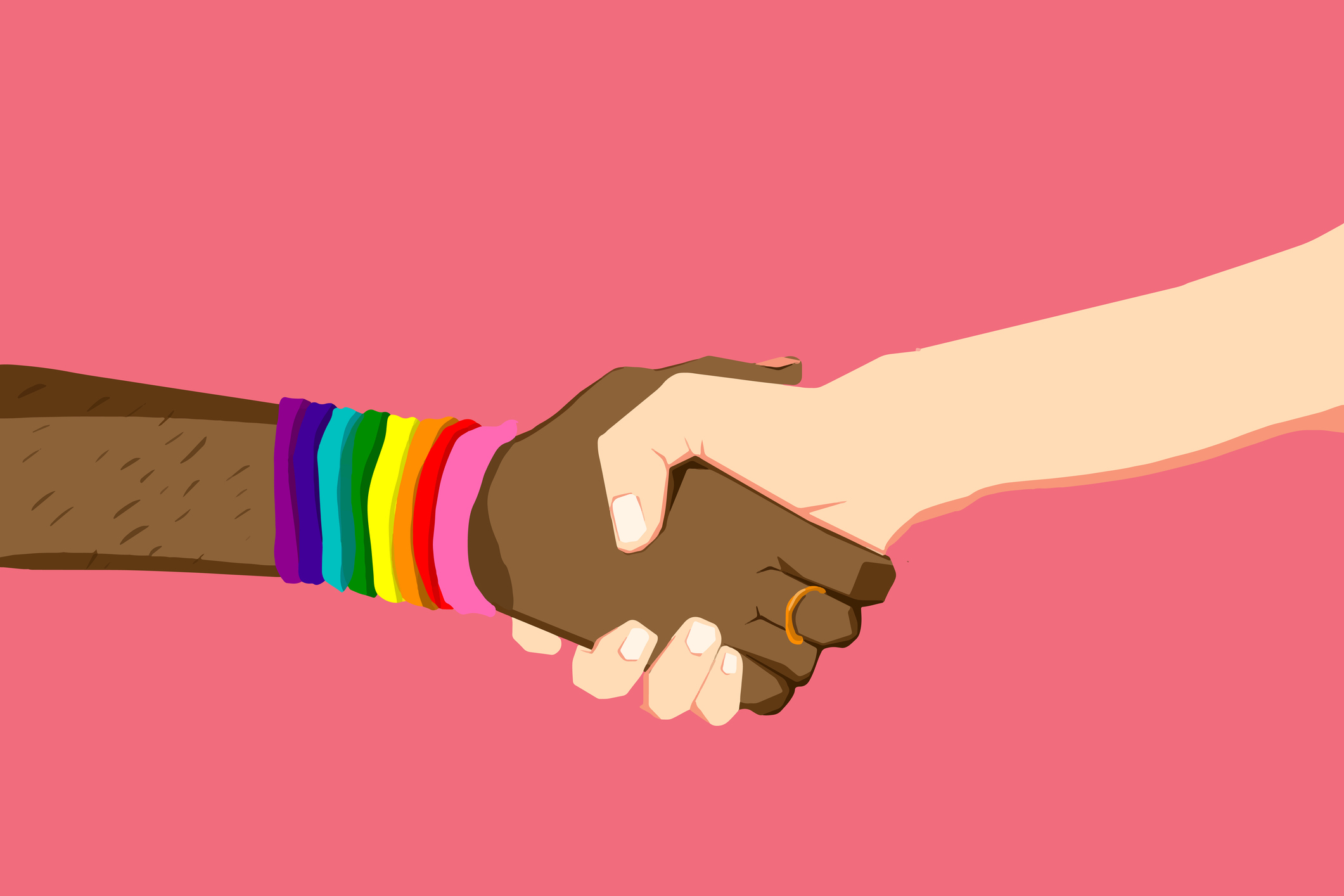By Dr. Tiffany Lange, Psy.D. (she/her/hers)
Being an effective ally to the LGBTQ+ (Lesbian, Gay, Bisexual, Transgender, Queer/Questioning, and related identities) community is much more than good intentions; it involves personal ownership to engage in self-reflection and lifelong learning. The following “Six Steps for Effective Allyship” provides tips and suggestions for demonstrating an active commitment to advancing the rights and needs of the LGBTQ+ community.
Six Steps for Effective Allyship
1. Do the necessary personal work. An effective ally embraces the responsibility to learn more about the LGBTQ+ community which involves understanding the difference between sexual orientation and gender identity, being aware of personal assumptions and biases, recognizing personal privilege, and making a commitment to use inclusive language. There are several ways this can be accomplished such as participating in professional development training, interacting with diverse groups, knowing the local laws and political environment, and avoiding assumptions about others.
2. Get comfortable with being uncomfortable. Allyship is a process that isn’t always convenient or comfortable; it involves acknowledging the limitation of one’s knowledge and facing the realities of inequality in society. A humble approach to allyship includes listening and being open to guidance from the LGBTQ+ community. Since perfection is not possible, allies realize that mistakes will occur and apologize when they happen. Learning from mistakes includes an understanding that intent is secondary to impact (intent is how you think and feel; impact is how your actions/words make the other person think and feel).
3. Create safe and inclusive spaces. Allies recognize that not all spaces are welcoming to the LGBTQ+ community and find opportunities to create inclusive environments through language and actions. Some ways to create safe spaces include using gender-neutral language, updating paperwork and electronic records for inclusivity, and displaying visual symbols of safety (e.g., Pride flags, LGBTQ+ resource materials, pronouns in electronic signature).
4. Elevate the voice of the community. Effective allyship involves speaking up but not over the voice of the LGBTQ+ community. The role of an ally is to speak when others may not be heard while creating opportunities for the community to talk. Elevating and amplifying the message of the LGBTQ+ community includes paying attention to current issues and challenges, striving to not overshadow the community you’re trying to support, and finding tangible ways to speak through actions (e.g., donate, volunteer, sign petitions, vote).
5. Find teachable moments. Recognize that silence is loud, and change starts with a conversation. Allyship involves speaking up when slurs, “jokes,” or insensitive language occurs, but it also requires determining when a situation is appropriate for learning. Advancing the rights and needs of the LGBTQ+ community does not require heated conversations with others – especially since those exchanges can be counterproductive (i.e., the backfire effect, or when attempts to correct misperceptions can increase the strength of the false beliefs). Rather, find teachable moments by inviting others to learn and begin their journey towards effective allyship.
6. Move beyond the label. Allyship is a verb requiring consistent action; saying you’re an ally is not enough. Consider ways to get involved every month of the year — oppression and discrimination do not take breaks; the LGBTQ+ community needs allies beyond June Pride Month.
Allies are an essential part of advancing the rights and needs of the LGBTQ+ community. Yet, allyship goes beyond verbal support with personal responsibility to be effective through words and actions. To further your learning, please visit OneOp for free learning opportunities and webinars about the LGBTQ+ community.
References
Human Rights Campaign. (n.d.) Glossary of terms. HRC Foundation. Retrieved from: https://www.hrc.org/resources/glossary-of-terms
Lange, T. M. (May 4, 2023). Providing affirmative care to the LGBTQ+ military community. OneOp. https://oneop.org/event/141493/
Lange, T. M. (May 11, 2023). Care considerations for the Transgender and Gender-Diverse military community. OneOp. https://oneop.org/event/141496/
Sherman, J. E. (2022). Getting defensive is human; backing down is too. Psychology Today. https://www.psychologytoday.com/us/blog/ambigamy/202209/getting-defensive-is-human-backing-down-is-too
Dr. Tiffany Lange, PsyD (she/her/hers) is a Licensed Clinical Psychologist and earned a doctoral degree from Spalding University in Louisville, Kentucky. She completed an advanced fellowship in Women’s and LGBTQ+ Health within the Veterans Health Administration and has served in senior leadership roles in non-profit, government, and private healthcare organizations. Dr. Lange presented in two webinars for OneOp entitled “Providing Affirmative Care to the LGBTQ+ Military Community” and “Care Considerations for the Transgender and Gender-Diverse Military Community.”















